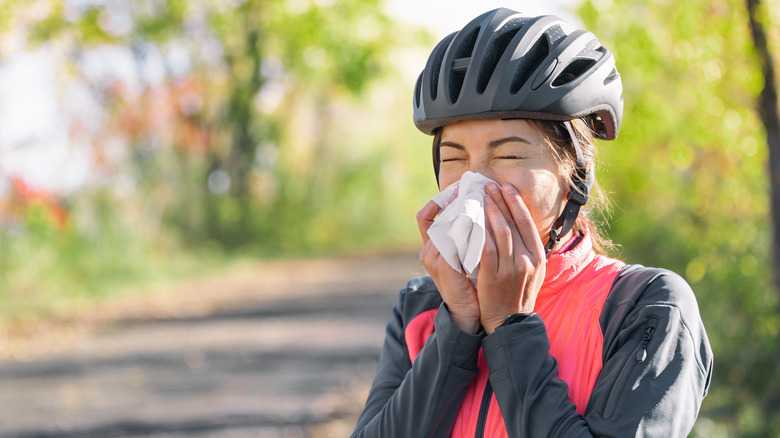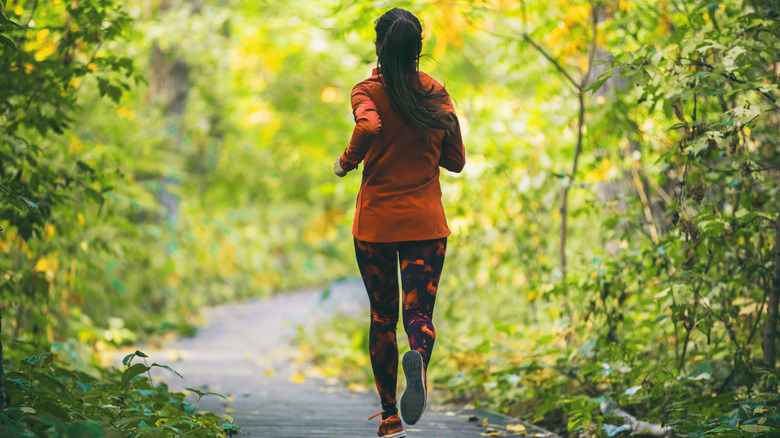Is It Ok To Work Out If You Have Seasonal Allergies?
Seasonal allergies, also known as hay fever or allergic rhinitis, can lead to uncomfortable and annoying symptoms like sneezing, runny nose, and itchy, watery eyes (via Healthline). This happens as a result of an overreaction of the immune system to an outdoor allergen like pollen from trees, grass, and weeds. According to the American Academy of Allergy, Asthma & Immunology (AAAI), about eight percent of Americans have seasonal allergies. Hay fever is less common in the winter, though it is possible to experience symptoms year round.
Depending on your triggers and where you live, seasonal allergies can make it difficult to be outside, let alone exercise in the outdoors. But as temperatures warm, the allure of working out in the sun provides a fun way to spice up your workout routine. While it can sometimes be challenging, there are steps you can take to help reduce symptoms of seasonal allergies while exercising outdoors.
Tips for exercising with seasonal allergies
According to the American Academy of Otolaryngic Allergy (AAOA), the best time to exercise outside during allergy season is during or right after the rain. If it's dry and windy, pollen is more likely to be blown around so it's best to opt for an indoor workout session during these times instead. Early morning is also generally considered a better time to exercise outside, as dew can help keep pollen at bay.
The type of exercise you choose can also have an effect on your allergy symptoms. Practicing yoga outside, for an example, will be less strenuous than going on a long run. If you're using any medications to treat your allergies, remember to follow the directions on the package or from your doctor. Finally, make sure to listen to your body (via WebMD). If you feel fatigued after exercising outside or it exacerbates your symptoms, consider keeping your workouts indoors.


